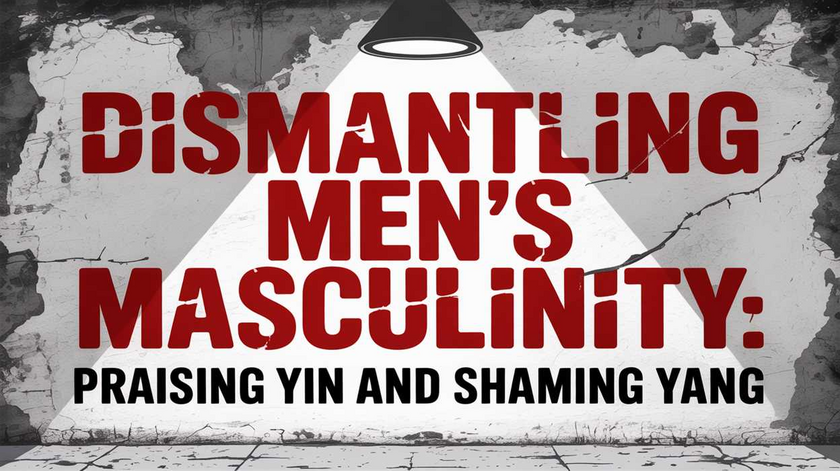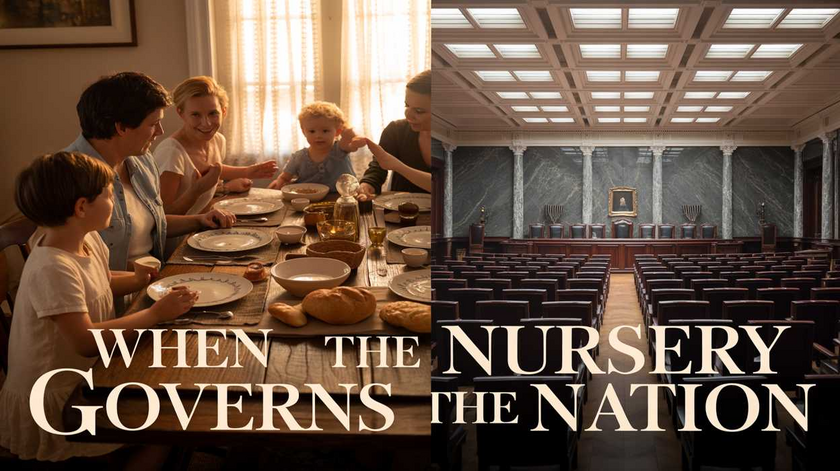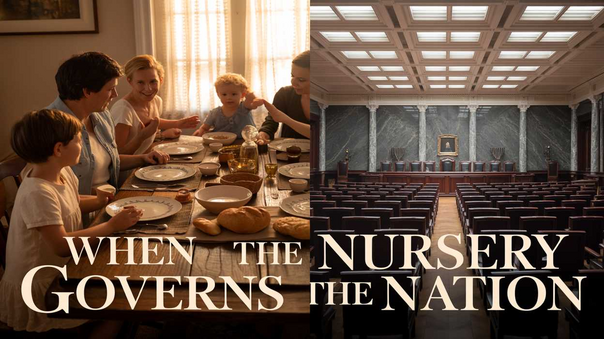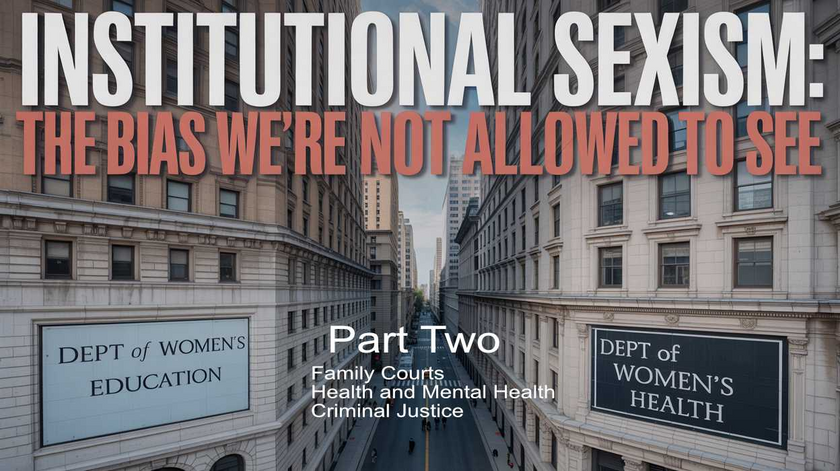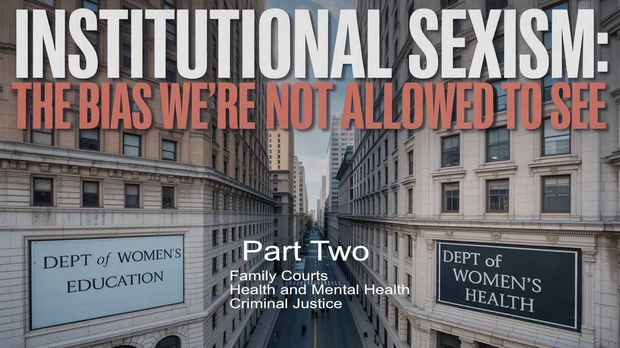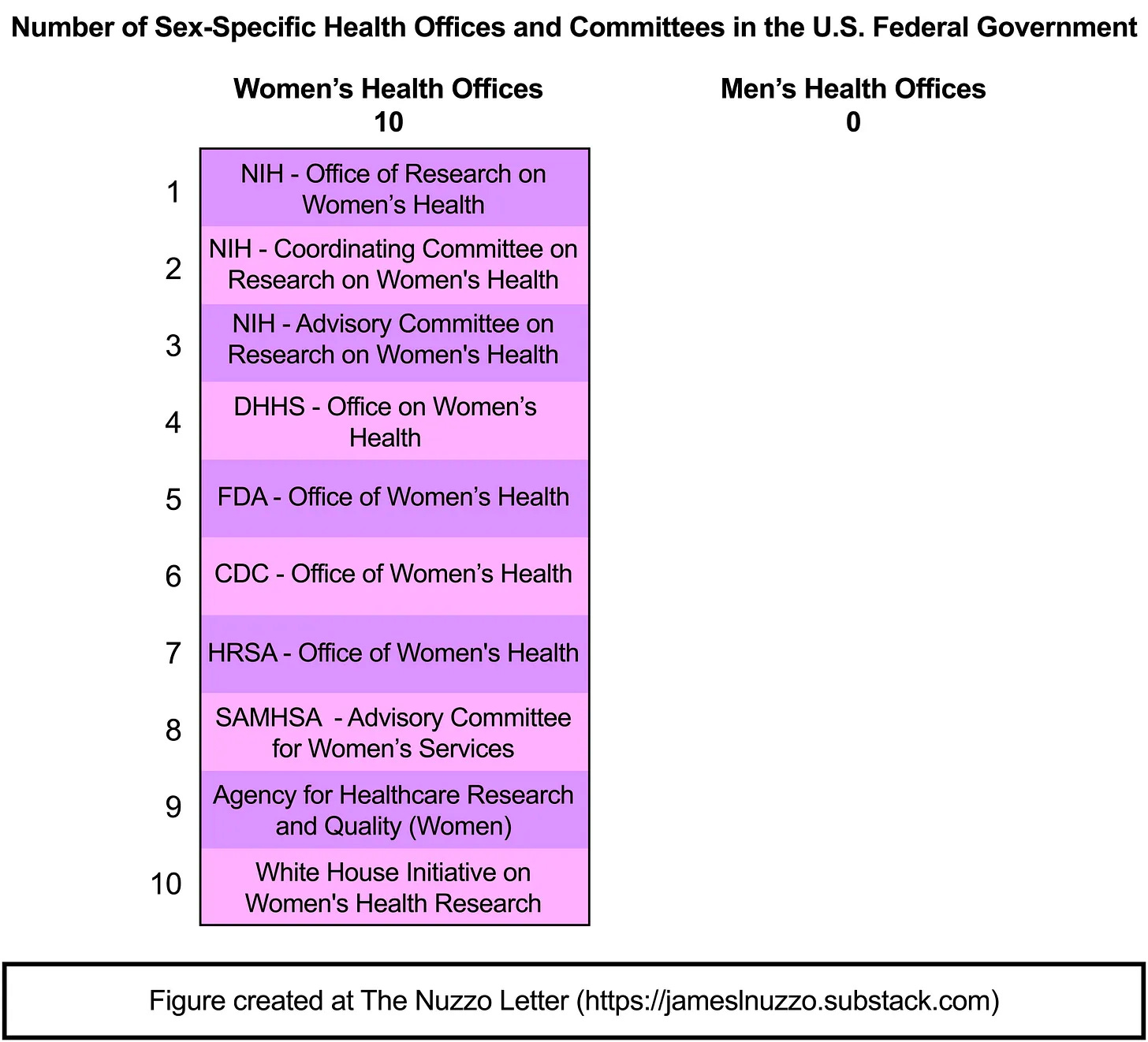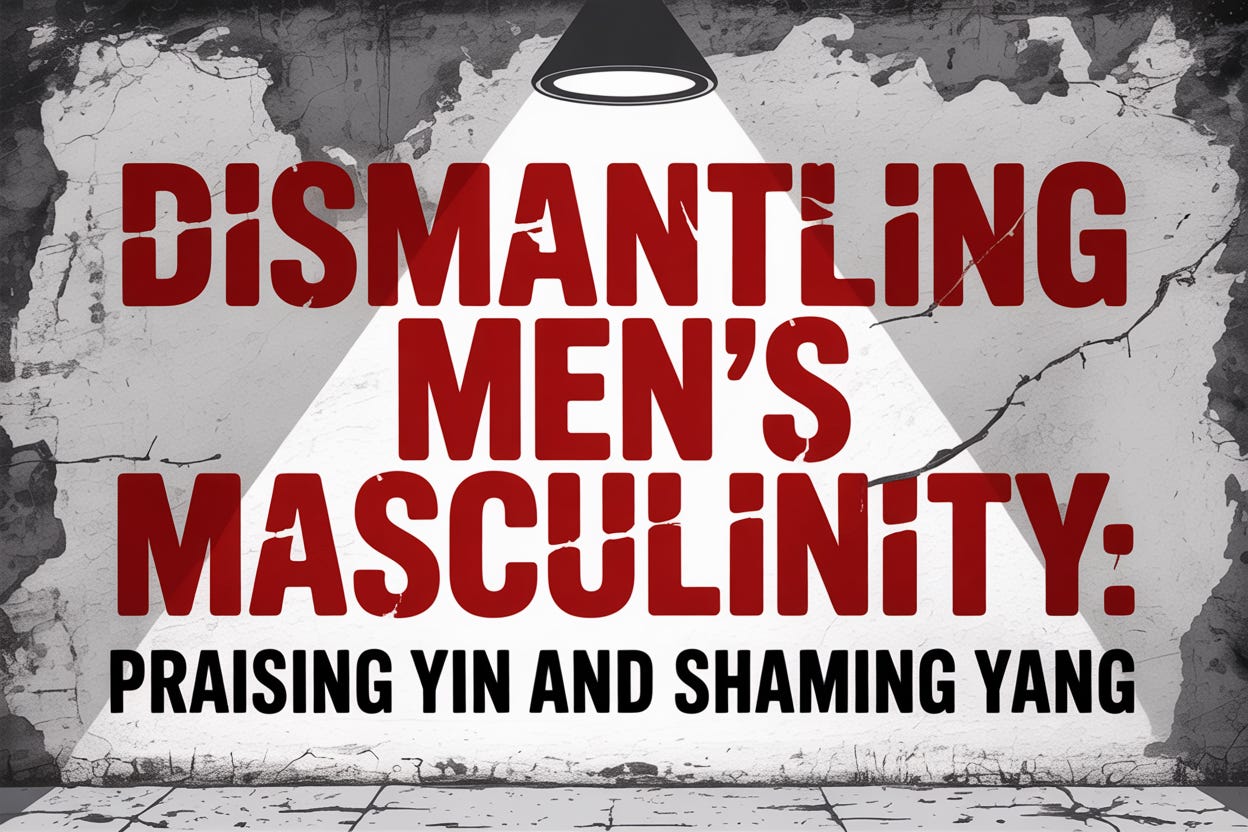
In Chinese philosophy, yin and yang represent complementary forces. Yin, often linked with the feminine, is receptive, inward, intuitive, and fluid. Yang, the masculine counterpart, is active, outward, structured, and bold. Neither is “better” than the other — balance is the point.
Our culture has slipped into imbalance. Instead of valuing both masculine (yang) and feminine (yin) traits, we treat yang traits in men as problems to be corrected while elevating yin traits as the moral ideal. This creates an environment where boys and men are shamed for expressing natural masculine tendencies, while the feminine is glorified as “healthier,” “safer,” or “more evolved.” To make matters worse, men are framed as the problem—legitimizing attacks against them—while women and girls are cast as victims, granting them cultural permission to adopt masculine traits. Boys watch in bewilderment as this double standard unfolds: masculinity is shamed in men but praised in women, and women are celebrated for both yin and yang traits. It defies logic, yet nearly every cultural institution reinforces it. We are living in a truly unbalanced world.
Let’s look at seven primary yang characteristics and how they’ve been discouraged in men.
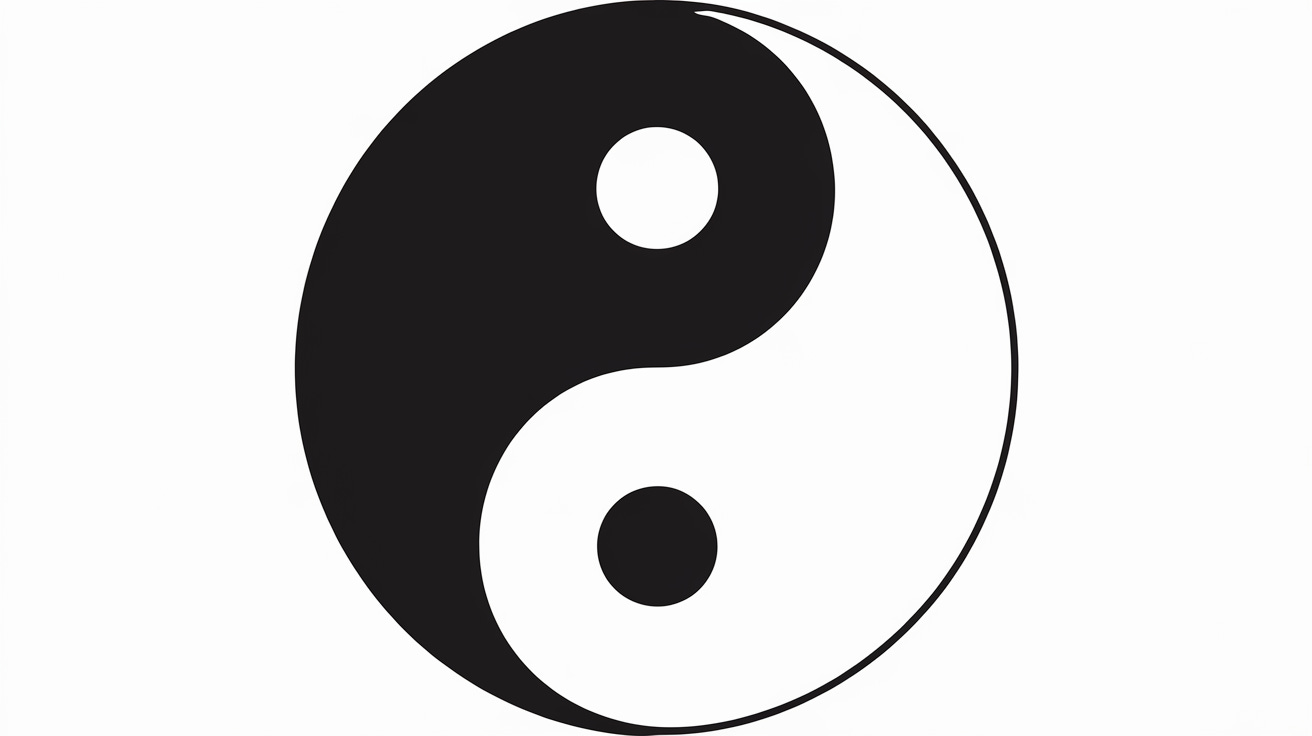
1. Active / Initiating
Yang energy moves forward, takes initiative, acts rather than waits. In boys, this shows up as physical play, restless energy, and risk-taking curiosity.
In schools, this natural boyish energy is often punished. Boys who get up, explore, or speak out are labeled “disruptive.” Increasingly, they’re medicated for ADHD — not because they’re sick, but because they don’t fit a classroom model designed for quiet compliance.
At the same time, receptivity and patience — yin traits — are praised. The quiet child is “well-behaved.” Girls who sit still are called “model students.” Boys learn quickly: initiative will get you in trouble, while passivity earns approval. Yet in a striking double standard, as boys are shamed for their energy, girls are increasingly praised for showing initiative and taking risks.
2. Rational / Analytical
Masculine energy emphasizes clarity and reason. But in relationships and therapy, men who rely on logic are accused of being “emotionally unavailable.” A husband who responds to conflict with analysis rather than emotional validation is told he’s “cold.”
Media reinforces this, portraying rational men as out of touch. Think of the sitcom father who is clueless and insensitive until the emotional wife rescues him with her intuition. Logic in men becomes something to mock or pathologize.
Meanwhile, intuition and emotional fluency are praised as “true intelligence.” Schools teach “emotional literacy” — overwhelmingly in a feminine key — while men’s rational approaches are sidelined. Yet here again, the double standard is obvious: when girls show clarity and reason, they are celebrated as strong and capable, while boys are criticized for the very same trait.
3. Independent / Self-Directed
Yang independence is about autonomy and leadership. In the past, this was recognized as a virtue. Today, independence in men is recast as selfishness.
In therapy, men who assert boundaries are accused of being avoidant. In family courts, fathers who resist intrusive parenting mandates are painted as uncooperative. At work, men who prefer autonomy are accused of “not being team players.”
Meanwhile, collectivist ideals are glorified. “Community,” “collaboration,” and “consensus” are treated as moral goods. The man who pursues his own vision is suspect; the man who dissolves into the group is praised. Yet when women insist on autonomy or self-direction, they are celebrated as “empowered” and “breaking barriers.” The very trait condemned in men is rewarded in women.
4. Expressive / Outward-Projecting
Yang expression is about projecting energy outward — speaking with authority, asserting oneself, showing presence. Today, this is routinely shamed. Men are accused of “mansplaining” when they speak confidently, of “taking up too much space” when they sit or stand naturally. Even in classrooms, boys who speak out are silenced while girls are coaxed to speak more.
Corporate trainings echo the same script: men must “step back” and “make space.” Male outwardness is recast as oppressive, while passivity and listening — yin traits — are presented as the moral high ground. Yet when women speak forcefully or take command of space, they are praised as bold and inspiring. The same assertiveness that earns men censure wins women applause.
5. Confident / Bold
Confidence, a core yang quality, is easily rebranded as arrogance or entitlement. A young man who asserts himself risks being accused of “toxic masculinity.” Ambition is reframed as greed or patriarchal privilege.
In education, boys who compete hard are told to “tone it down.” In dating, confidence is increasingly viewed with suspicion. A man approaching a woman boldly risks being labeled a predator, while tentativeness is reframed as “respect.”
Meanwhile, vulnerability has been rebranded as the new courage. Being hesitant, emotionally raw, or self-doubting is celebrated — but only when men embody it. Boldness is shamed; vulnerability is glorified. And once again, the double standard is clear: when women display confidence and ambition, they are praised as trailblazers and role models. What is condemned in men is applauded in women.
6. Competitive / Striving
Competition once fueled innovation, excellence, and mastery. For boys, striving to test themselves against others was natural.
Today, competition is under attack. Schools downplay winning, cancel scores, and hand out participation trophies. Boys are told that striving to be the best is unfair or mean-spirited. Even in workplaces, ambition is framed as “cutthroat.”
Meanwhile, cooperation is praised as the higher moral good. Equality of outcome — not excellence — is celebrated. The yin trait of blending in is exalted over the yang drive to stand out. And yet, when girls and women show drive, ambition, and competitiveness, they are praised as strong, empowered, and fearless. The very striving that earns boys censure is reframed as heroic when displayed by girls.
7. Stable / Structured
Yang energy provides order and discipline. Fathers setting boundaries, men building institutions, coaches demanding discipline — all are examples of stabilizing structure.
Yet structure is often demonized. Discipline is rebranded as control. Fathers who insist on rules are called authoritarian, while mothers who allow flexibility are celebrated as “nurturing.” In broader culture, structure is portrayed as oppression, while fluidity and openness are presented as progressive ideals.
And here too the double standard is unmistakable: when women take charge, enforce rules, or demand order, they are praised as strong leaders and role models. But when men do the very same thing, they are criticized as rigid, controlling, or oppressive. The masculine contribution of structure is vilified in men while valorized in women.
The “Male Privilege” Narrative
Layered on top of this shaming is the constant accusation of male privilege. Men are told they benefit from invisible advantages that invalidate their struggles. The boy disciplined in school for his energy is “privileged.” The man told his logic is cold is “privileged.” The father stripped of custody in court is “privileged.”
This accusation functions as a silencing tactic: no matter what hardships men face, their yang traits are delegitimized by the claim that they come from an unfair advantage. It’s a clever inversion — turning natural masculine expressions into proof of oppression.
For boys, the effect is especially disorienting. They are punished and shamed for their natural energy, independence, or boldness, yet they watch those same qualities praised in girls as “empowerment.” Imagine growing up in that atmosphere — told that what comes naturally to you is toxic, while applauded when someone else displays it. It creates confusion, self-doubt, and a sense of injustice that borders on madness. Boys learn not just that they are wrong, but that their very strengths are only acceptable when embodied by someone else.
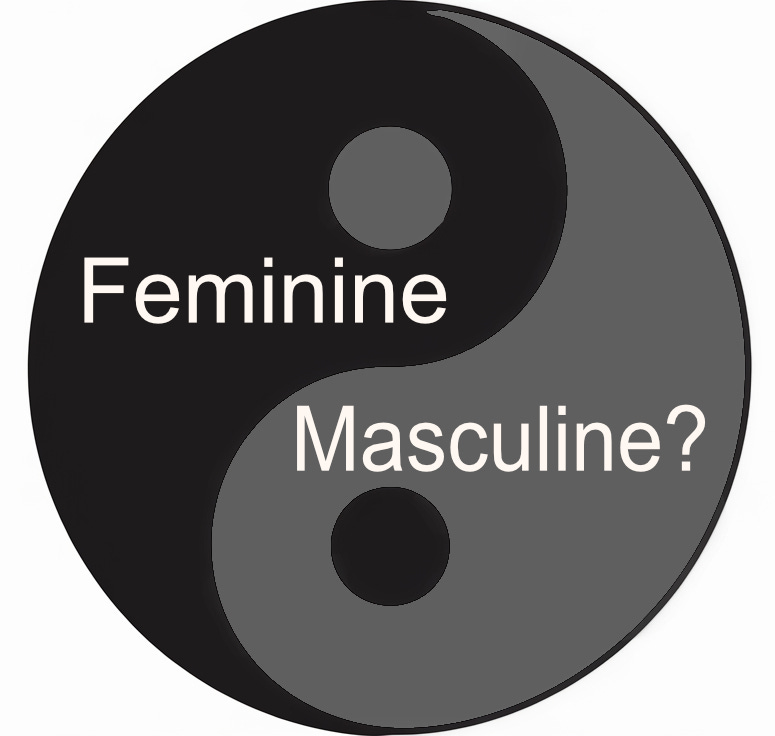
When Yin Is Glorified and Yang Is Shamed
Chinese philosophy has a very straightforward warning: when yin and yang fall out of balance, decay follows. Illness in the body, discord in relationships, collapse in societies — all are traced to one side being exalted while the other is suppressed.
Today, our culture is caught in just such an imbalance. Feminine (yin) traits — receptivity, emotion, flexibility — are not only praised, they are presented as the gold standard for everyone. Masculine (yang) traits — activity, logic, independence, boldness, competition, structure — are not only discouraged, they are actively shamed.
From the Chinese perspective, this is a recipe for trouble. Here’s what they would say is coming:
Stagnation and Weakness: Too much yin creates passivity. Boys withdraw, men retreat, societies lose resilience.
Anxiety and Discord: Suppressed yang resurfaces in distorted ways — aggression, violence, self-destruction.
Collapse of Natural Order: Institutions weaken when initiative, structure, and clarity are attacked. Families fracture, schools falter, social trust declines.
Loss of Wholeness: When one side is glorified and the other shamed, the creative power of balance disappears. Everyone loses.
Restoring the Missing Balance
Chinese wisdom is blunt: when yin and yang fall out of balance, decline is inevitable. Our culture has tipped hard toward yin, glorifying receptivity, vulnerability, and fluidity while shaming activity, confidence, and structure. We are out of balance.
And balance will not return by doubling down on yin or by continuing to accuse men of “privilege” whenever they show their natural strengths. The way forward is to restore respect for yang.
That means honoring boys’ energy instead of medicating it away. Valuing men’s rational clarity instead of mocking it as cold. Praising independence and confidence in men just as we do in women. Allowing competition and striving to be celebrated, not shamed. And recognizing that discipline and structure are not oppression, but foundations for growth.
Revaluing the masculine does not mean dismissing the feminine. It means returning to the truth the Chinese saw thousands of years ago: life flourishes only when yin and yang stand side by side, each strong, each respected, each essential.
If we continue to shame one half of the human equation, we invite stagnation, confusion, and collapse. But if we restore balance, we give our sons — and our daughters — the gift of wholeness.
Men Are Good. So is Yang.
